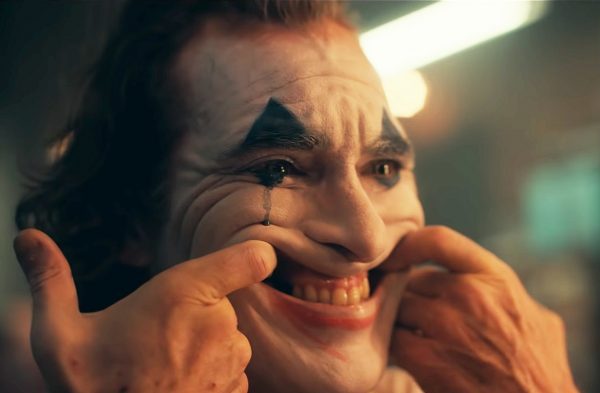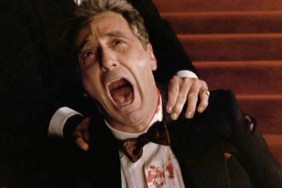Joker wowed movie fans when it recently raked in a whopping 11 Oscar nominations. The character study of a nihilistic clown for hire and aspiring stand-up comedian who turns into a serial killer was director Todd Phillips’ first foray into dramatic filmmaking, and by many accounts, it was successful. Still, the comic-book-inspired film has stirred controversy among pop culture critics and movie reviewers alike. While Joaquin Phoenix’s performance as the troubled Arthur Fleck was undeniably impressive, some might say Joker is not only unworthy of an Academy Award but is also an example of socially irresponsible filmmaking. We’ve unpacked the movie’s many fatal flaws to show why Joker doesn’t deserve an Oscar for Best Picture.
Cover Photo: Warner Bros.
Oscar Snubs: 10 People Brutally Ignored by 2020 Academy Awards
Mandatory Joker Battles: Heath Ledger vs. Joaquin Phoenix
Follow Mandatory on Facebook, Twitter, and Instagram.
Joker Doesnt Deserve Oscar
-
'Joker' demonizes mental illness.

One in five adults in America experience mental illness annually. And yet, one in five adults do not become serial killers. People with mental illness hold down jobs, have families, contribute to their communities, and do so much more, but you wouldn't know that from Joker. Phillips' protagonist is insane to the extreme and this film feeds stereotypes that people with mental illness are crazy, dangerous, and beyond help. And yet, Phillips seems to believe he's doing mental health a service (he even gloated on NPR's Fresh Air that viewers have declared the film a "wonderful depiction of mental illness") when in fact his depiction is reckless. Phillips claims that "the system is broken" and that the film depicts the consequences of that; indeed, the system is broken, but the people who use it aren't. If this is your idea of what mental illness looks like, you need to look again.
-
'Joker' portrays white men as an oppressed minority.
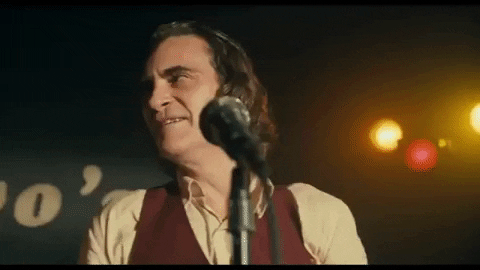
While on a late-night talk show, Joker rants to host Murray Franklin (Robert De Niro) about how "nobody thinks what it's like to be the other guy," showing us that Arthur Fleck has adopted the label of "other," even though, as a white man, he's among the majority and a member of the demographic that's been in power for centuries. His self-pitying sob story continues: "They think we'll just sit there and take it like good little boys." Please, Arthur, tell us more about how invisible and oppressed you are. The women and people of color in the audience who have actually suffered systemic oppression since the day they were born are dying to hear more about your struggle.
-
'Joker' promotes vigilante justice.
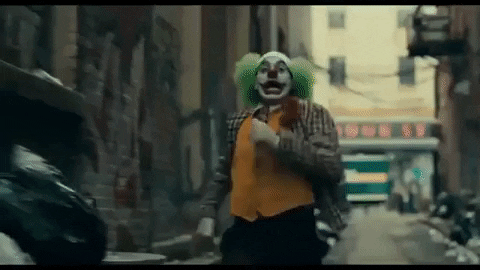
Phillips has justified the brutal violence in Joker by saying that Arthur Fleck only kills people who have wronged him. (Because, as we all know, as long as you have a half-assed reason, murder is a totally appropriate response to being slighted.) Look at Joker's victims, though, and you'll see a common theme in their "crimes": they humiliated him. "I killed those guys because they were awful," Joker informs Murray Franklin during his late-night talk show appearance. "Everybody is awful these days. It's enough to make anyone crazy." According to this logic, everyone deserves to die just because they annoy you or don't laugh at your bad jokes. Do you want to live in a lawless world where people take justice into their own hands? We don't. But Phillips seems down with it.
-
'Joker' portrays women as victims.

The female characters in Joker don't get to do much, other than act as sounding boards, blame-takers, and victims of Arthur Fleck's psychosis. The few women in the film are depicted as unkind, critical, abusive, and/or incompetent. They don't understand Fleck's supposedly good intentions. (Could it be that he's creepy AF and they're responding in completely appropriate, protective ways?) Phillips seems to want to explain away Fleck's anger, and one of the ways he does it is through women who don't respond as compassionately as he thinks they should. Finally, from the woman on the subway to the psychiatrist in the final moments of the film, they're all victims -- of budget cuts, of harassment, of stalking, of murder. Though Fleck defends one such female victim in the beginning of the film (and pays a hefty price for it), he ultimately becomes the perpetrator of the most heinous acts against women. Thanks for the reminder that misogyny is alive and well, Phillips.
-
Characters of color are treated as obstacles.
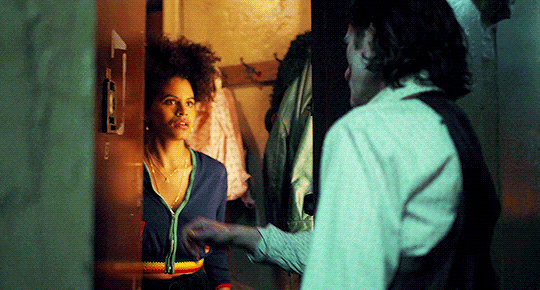
There are very few characters of color in Joker, and those featured are depicted as obstacles to Fleck getting what he wants. There's the woman on the bus (who shuts down Fleck's playfulness with a child), the social worker (who abandons Fleck in his time of need), the file clerk (who denies Fleck access to his mother's psychiatric records), the love interest (who does not return Fleck's affection), and the psychiatrist (who, we can assume, would have recommended Fleck stay locked up had he not murdered her). It's almost as if the film is saying that Fleck's life would be so much easier if only these people of color would get out of his way! It's also noteworthy that Gotham was originally based on New York City, said to be the most diverse city in the world. Odd, then, that Phillips' version of Gotham has so few people of color inhabiting it.
-
The riot scene is a dog whistle.
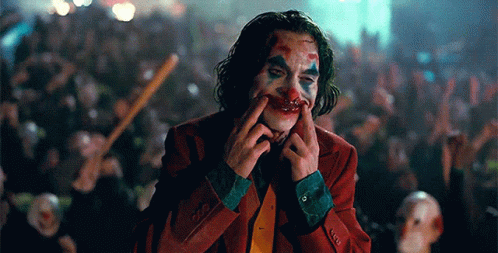
Remember when white nationalists marched through Charlottesville, Virginia, with tiki torches? The riot scene in Joker looks eerily similar. Young, primarily white men raise bats in honor of Joker, an antihero the film wants us to empathize with rather than condemn as the cold-blooded killer he is. If this doesn't give you shivers -- or at the very least pause -- you're not paying attention.
-
That lame laughing metaphor.
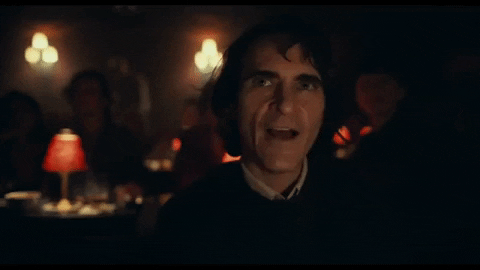
While pseudobulbar affect (PBA, aka emotional incontinence) is a real disorder, it feels like too easy and obvious an affliction to slap on Fleck. An unfunny stand-up comedian who can't control his laughter? Hardy-fucking-har. Somebody needs to go back to screenwriter school and try again.
-
It's not a comic book movie.
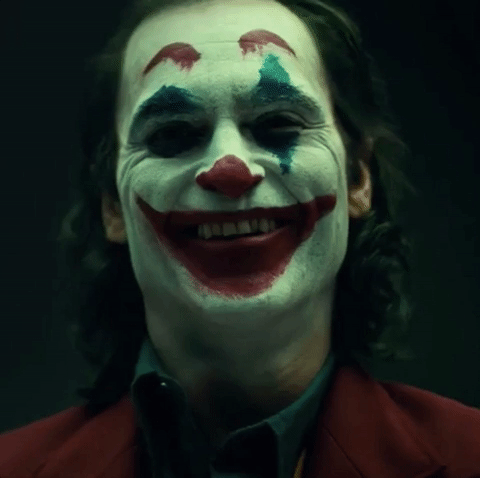
Joker's 11 Oscar nominations would be impressive if this were actually a comic book movie -- and even more impressive if it were a groundbreaking one, like Black Panther. Instead, Joker is a character study, one that hijacks a legendary narrative and turns it into a meditation on male anger and entitlement. There's nothing groundbreaking about that; just look at the rest of the films nominated in the Best Director category and you'll see what we mean.
